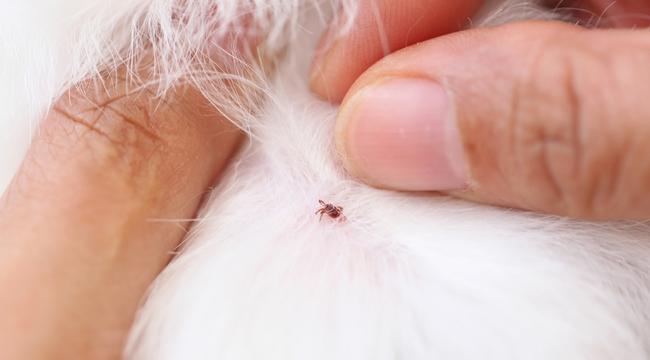
Dogs are known to be loyal and affectionate pets that can bring immense joy and happiness to our lives. However, as much as we love them, they can also attract a variety of pests that can cause them discomfort, pain, and even serious health problems. In this article, we will discuss some of the most common dog pests and how to prevent them.
Fleas
Fleas are one of the most common dog pests, and they can quickly become a nuisance if not treated promptly. These tiny insects feed on the blood of animals, including dogs, and can cause skin irritation, itching, and even anemia in severe cases. If you notice your dog scratching excessively or biting their skin, it may be a sign of a flea infestation.
To prevent fleas, it is important to keep your dog’s environment clean and hygienic. You can get rid of flea eggs and larvae by vacuuming your home often and washing your dog’s bedding. Additionally, using flea prevention products, such as collars, topical treatments, or oral medications, can help keep fleas at bay.
Ticks
Ticks are another common dog pest that can cause serious health problems. These small, spider-like parasites attach themselves to your dog’s skin and feed on their blood. Ticks can transmit a variety of diseases, such as Lyme disease, Rocky Mountain spotted fever, and ehrlichiosis.
To prevent ticks, it is important to check your dog for ticks regularly, especially after spending time outdoors in wooded or grassy areas. Removing ticks promptly with tweezers or a tick removal tool can help reduce the risk of disease transmission. Using tick prevention products, such as collars, topical treatments, or oral medications, can also help protect your dog from ticks.
Mites
Mites are tiny, spider-like parasites that can cause a variety of skin problems in dogs. There are several types of mites that can affect dogs, including ear mites, mange mites, and demodex mites. Ear mites, as the name suggests, live in the ears of dogs and can cause itching, head shaking, and ear discharge. Mange mites can cause hair loss, itching, and skin irritation, while demodex mites can cause patchy hair loss and skin infections.
To prevent mites, it is important to keep your dog’s ears and skin clean and healthy. Regular grooming, such as brushing and bathing, can help remove any mites or eggs from your dog’s fur. If you suspect your dog has mites, it is important to consult with your veterinarian for proper diagnosis and treatment.
Mosquitoes
Mosquitoes are not only annoying to humans, but they can also transmit a variety of diseases to dogs, such as heartworm disease, West Nile virus, and eastern equine encephalitis. Heartworm disease, in particular, can be a serious and potentially fatal disease in dogs.
To prevent mosquitoes, it is important to eliminate any standing water in your yard, as this can be a breeding ground for mosquitoes. Additionally, using mosquito prevention products, such as sprays, candles, or mosquito-repelling plants, can help reduce the number of mosquitoes around your home. Using heartworm prevention products, such as monthly heartworm pills, can also help protect your dog from heartworm disease.
Way To Prevent A Pest Infestation

Hiring an Exterminator
If your pest infestation is out of control or too overbearing for DIY household tricks, hiring a professional exterminator may be your best solution.
Regardless of your pest problem, you can eliminate the problem at a reasonable price. If you have a rat infestation, find a Los Angeles rat control service.
Keep Your Home Or Business Clean
Regularly clean all areas, including floors, counters, and storage areas, to remove crumbs and debris that can attract pests. Properly dispose of garbage in sealed containers.
Seal Entry points
Inspect your home or business for any cracks or gaps that pests could use to enter. Seal these areas with caulk, weather stripping, or other materials.
Store Food Properly
Store all food in airtight containers to prevent pests from accessing it. Make sure to clean up any spills or crumbs immediately.
Remove Standing Water
Pests, such as mosquitoes and rodents, are attracted to standing water. Remove any sources of standing water in and around your home or business.
Keep Outdoor Areas Clean
Maintain your lawn, trees, and shrubs to prevent overgrowth that could attract pests. Remove any debris or clutter from your yard.
Use Pest Control Products
Use pest control products, such as traps and baits, to catch and eliminate pests. If using pesticides, follow the instructions carefully and use them only as directed.
By following these tips, you can help prevent a pest infestation in your home or business. If you already have an infestation, it’s important to call a professional pest control service to safely and effectively eliminate the problem.
How Often Should Pest Control be Done?
The frequency of pest control depends on various factors, such as the type of pest, the severity of the infestation, the location of the property, and the preventative measures taken. In general, it is recommended to have regular pest control inspections and treatments at least once every three to six months. However, in certain situations, such as in areas with high pest activity or if the property has a history of infestations, more frequent treatments may be necessary.
It is also important to note that preventative measures such as maintaining cleanliness, proper storage of food and garbage, and sealing entry points can help reduce the need for frequent pest control treatments. You should work with a licensed pest control professional to develop a customized treatment plan and schedule that best fits their needs.



